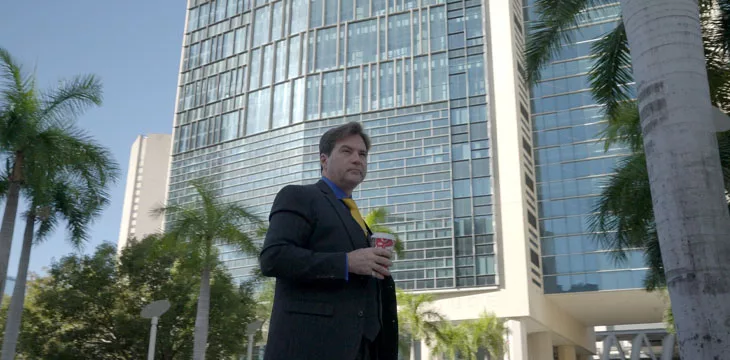|
Getting your Trinity Audio player ready...
|
Judge Beth Bloom has dismissed yet another attempt by Ira Kleiman to have Dr. Craig Wright hit with sanctions over his alleged failure to comply with a court order to fill in a form setting out his assets, confirming an earlier ruling that Dr. Wright had filled in the form to the satisfaction of the court.
“[The objections] are improper because they largely reframe arguments already made and thoroughly considered by Judge Reinhart, or they simply disagree with Judge Reinhardt’s conclusions.”
“Moreover, the Court finds Judge Reinhardt’s Order to be well-reasoned and correct.”
In particular, Judge Bloom disagreed with Kleiman’s argument that the 1.977 form—which sets out a person’s assets in order to assist in the recovery of any legal judgments against them—required Dr. Wright to set out his digital asset holdings.
Judge Bloom also agreed with Judge Reinhart that Kleiman had failed to show the other declarations made by Dr. Wright on the form were inaccurate. One of the specific contentions made by Kleiman was that Dr. Wright was being dishonest in declaring that his only personal income comes from his $159,000 annual salary: this was rejected by Reinhart on the basis that W&K had failed to prove that Dr. Wright’s form was inaccurate. Judge Bloom was as unimpressed by this as Reinhart was, saying:
“[Kleiman] argues that this finding is clear error but fails to identity any required information that Dr. Wright omitted. For instance, W&K observes that Dr. Wright’s tax documents request that Dr. Wright’s tax refund be deposited into his bank account, yet the July 24 Form fails to list any tax refunds. [Kleiman] similarly argues that Dr. Wright’s credit card statements show expenses well beyond his reported income. W&K does not articulate any specific assets or investments reflected on those documents that should have been disclosed on the July 24 Form, however. Moreover, Judge Reinhart considered and rejected those arguments after determining that [Kleiman] failed to show with clear and convincing evidence that the July 24 form was incomplete.”
However, Judge Bloom also preserves Reinhart’s finding that for the period between Dr. Wright’s first filed 1.977 form (made in April) and his subsequent, corrected version, which was filed on July 24, Dr. Wright was, in fact, in violation of the Court’s order to fill out the 1.977 form, which originally stipulated a deadline of April 3. Though Dr. Wright’s July 24 filing brought him in full compliance with the court order, that period between April and July is still capable of being the subject of civil sanctions.
A hearing to determine whether sanctions relating to that period are appropriate has been set for February 15 at 9 a.m. in Miami.
Kleiman is almost out of last-ditch efforts
Kleiman and his attorneys have been trying to convince a series of Judges in Florida to levy civil sanctions on Dr. Wright since April 2023.
The core of the issue is Dr. Wright’s completion of what’s known as a 1.977 form, which sets out a person’s assets in order to assist in the recovery of any judgments owed by them. In this case, Dr. Wright owes $144 million as a result of 2021’s Kleiman v Wright blockbuster trial—except he owes it to a company called W&K rather than to Ira Kleiman, and filings made throughout the Kleiman case and in the time since show that W&K is owned and controlled by Dr. Wright and his family. That fact perhaps explains why Ira Kleiman is pushing his attempt to have Dr. Wright sanctioned to the limit: it’s simply the last avenue available to salvage any kind of victory from his practically total loss in Kleiman.
Nonetheless, Dr. Wright completed the 1.977 form in April, having been ordered to by the court. Kleiman then complained to the court that the form completed by Dr. Wright was deficient in a number of respects, including in Dr. Wright’s decision to leave off the details of his employer’s details and his failure to set out the digital assets held by him globally. Dr. Wright filed a re-amended form on July 24 (though still omitting his digital asset holdings), which was deemed by Reinhart (and now Judge Bloom) to be satisfactory.
Now, there will be a hearing in February to determine if that narrow period of non-compliance is enough to warrant punishment from the court. No matter what happens at that hearing, Kleiman will be left in the same position he’s been in since the end of 2021: facing the impossible challenge of recovering $144 million from Dr. Craig Wright on behalf of a company practically owned by Wright.

 07-15-2025
07-15-2025 





